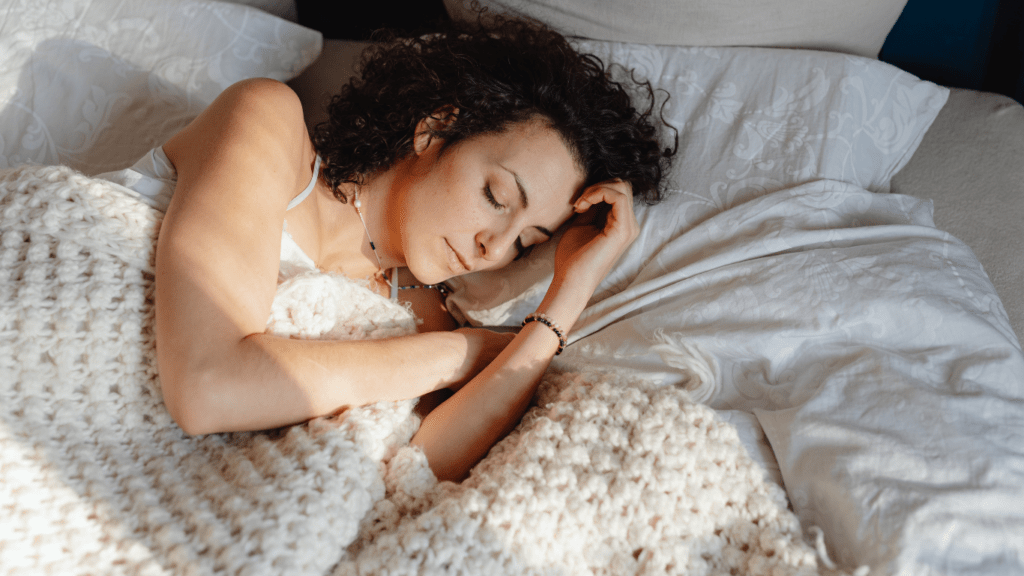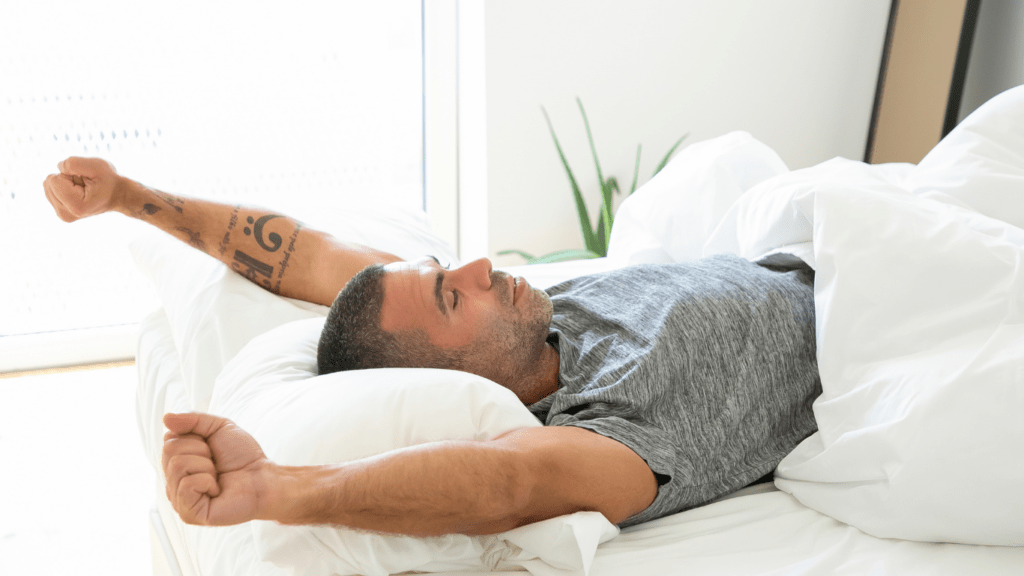The Science Behind Sleep and Skin Health
Sleep plays a critical role in skin health and overall well-being. Understanding the science can help highlight its importance.
Skin Repair and Cell Regeneration During Sleep
During sleep, the skin enters a repair and regeneration phase. Cellular turnover increases, with skin cells growing roughly double the rate at night compared to daytime.
This process helps counter damage from daily exposure to UV rays and pollution. Growth hormone, which spikes during sleep, aids in collagen production, essential for skin strength and elasticity.
How Sleep Deprivation Accelerates Skin Aging
Inadequate sleep speeds up skin aging. Chronic sleep loss elevates cortisol levels, which breaks down collagen, leading to sagging skin and fine lines.
Less sleep disrupts the natural barrier function, resulting in dryness and irritation. A study from University Hospitals Case Medical Center found that poor sleepers showed more signs of skin aging, including:
- fine lines
- uneven pigmentation
- reduced elasticity
Link Between Quality Sleep and Overall Health
Quality sleep is vital for maintaining overall health. It influences various bodily functions and enhances well-being.
Boosting Immunity With Adequate Sleep
Adequate sleep boosts immunity by enhancing the body’s ability to ward off infections. During sleep, the immune system releases cytokines, proteins aiding in cell communication and immune response.
Increased production strengthens the body’s defense mechanism.
Short sleep duration (less than 7 hours per night) has been linked to increased susceptibility to colds and flu, according to studies. Adequate sleep helps improve vaccine efficacy by ensuring optimal immune function.
The Role of Sleep in Weight Management
Sleep plays a crucial role in weight management by regulating hormones influencing hunger and appetite. Lack of sleep disrupts the balance of ghrelin and leptin, hormones controlling hunger and satiety.
Elevated ghrelin levels and reduced leptin levels lead to increased appetite and calorie intake.
Research has shown that people who sleep less than 6 hours per night have a higher risk of obesity. Sleep deprivation often results in increased consumption of high-calorie foods due to cravings and impaired judgment regarding food choices.
By understanding the link between sleep, immunity, and weight management, it’s evident that quality sleep is a cornerstone of overall health.
Tips for Improving Sleep for Better Skin and Health

Consistent and quality sleep plays a significant role in maintaining skin health and overall well-being. By adopting certain habits, you can enhance your sleep to improve both skin appearance and general health.
Establishing a Nightly Routine
A nightly routine helps signal your body that it’s time to wind down. I recommend starting with:
- Consistent Sleep Schedule: Going to bed and waking up at the same time daily, even on weekends, helps regulate your internal clock.
- Relaxing Pre-Sleep Activities: Engage in calming activities like reading a book, taking a warm bath, or practicing meditation 30 minutes before bed.
- Limiting Screen Time: Digital devices emit blue light that interferes with melatonin production. Avoid screens at least one hour before bedtime.
- Comfortable Mattress and Pillows: A good mattress and supportive pillows ensure proper body alignment and can reduce sleep disturbances.
- Optimal Room Temperature: Keep your room cool, ideally between 60-67°F, as a cooler environment promotes better sleep.
- Dark and Quiet Room: Use blackout curtains to block light and earplugs or white noise machines to eliminate background noise.
- Minimal Distractions: Remove potential disruptions like pets or unnecessary electronics from your sleep area.
Common Sleep Disorders Impacting Skin and Health
Sleep disorders significantly degrade skin health and overall well-being. Understanding these disorders helps in managing their effects on the body.
Sleep Apnea and Its Effects on the Body
Sleep apnea, a condition causing breathing interruptions during sleep, weakens physical health. It reduces oxygen levels, leaving skin looking dull and contributing to premature aging.
Chronic sufferers face increased risks of hypertension, heart disease, and diabetes. If untreated, sleep apnea diminishes quality of life, resulting in overall health deterioration.
Insomnia’s Toll on Physical Appearance
Insomnia, characterized by difficulty falling or staying asleep, directly impacts appearance. Those experiencing insomnia often show signs of fatigue, such as dark circles and puffiness.
Long-term insomnia accelerates skin aging due to reduced cell regeneration during sleep. It weakens the immune system, making the skin more susceptible to infections and conditions like eczema and psoriasis.
Managing insomnia is crucial for maintaining both skin and overall health.


 Bradley Frankirly is a distinguished article writer at Body Care And Matter, bringing a unique perspective to the world of health and wellness journalism. With a keen eye for detail and a passion for storytelling, Bradley crafts articles that resonate deeply with readers, offering both informative content and a relatable narrative.
Bradley Frankirly is a distinguished article writer at Body Care And Matter, bringing a unique perspective to the world of health and wellness journalism. With a keen eye for detail and a passion for storytelling, Bradley crafts articles that resonate deeply with readers, offering both informative content and a relatable narrative.

